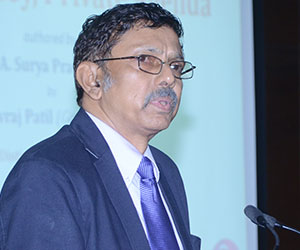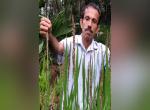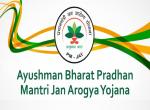The House of the People (the Lok Sabha) has 543 elected members and two nominated seats. Article 331 of the Constitution stipulates that the nominated seats are exclusively for members of the Anglo-Indian community. This provision was made in 1950 in order to reassure the Anglo-Indians that their voice would continue to be heard in Parliament even after the departure of the British. Similarly, Article 333 of the Constitution provides for nomination of one member of this community to the assembly of a state, where such nomination is deemed necessary. Currently, Anglo-Indians enjoy this privilege in eight state assemblies.
There were around 800,000 Anglo-Indians in India in the 1940s. However, over the past six decades, a major section of the Anglo-Indians has migrated to many countries in the Commonwealth including the United Kingdom, Australia and Canada. The community has experienced demographic decline for other reasons as well. Current guesstimates put the number of Anglo-Indians in India at around 1,00,000. Because of the steady decline in population, successive governments at the Centre have found it difficult to find worthy candidates for nomination to the House of the People.
Meanwhile, another community – the Parsis – which has made an extraordinary contribution in various walks of life in the country faces the threat of extinction. The Parsis, who numbered just around 100,000 in 1971 dwindled to 69601 in 2001.1
Demographers estimate that their numbers would touch an abysmal 23,000 in a couple of decades.
It is therefore proposed that Article 331 and 333 of the Constitution be amended to throw open the nominated seats in the Lok Sabha and the state assemblies to both the Anglo-Indians and the Parsis. This will give much needed political strength to India’s smallest ethnic cum religious minority and re-inforce the country’s commitment to its secular ideals. Side by side, this move will preserve the country’s commitment to the Anglo-Indian community despite its depleting numbers.
It must be noted that although the Anglo-Indians were given this special privilege via Article 331, it is not a blanket assurance. Article 331 says “Notwithstanding anything in article 81, the President may, if he is of opinion that the Anglo-Indian community is not adequately represented in the House of the People, nominate not more than two members of that community to the House of the People”.2
When the Constitution came into being in 1950, there were around 8 lakh Anglo-Indians in India. Their number is now just around one lakh. Therefore, if our Constitution-makers felt that “not more than two members’ could be nominated to ensure “adequate representation” when their numbers were around eight lakhs, surely one nomination should be adequate now to meet the requirement of “adequate representation”?
Secondly, when every elected Member of the Lok Sabha today represents around 2.5 million people, how can the 100,000 strong Anglo-Indian community argue that they need two seats in that House to ensure their “adequate representation”?
Articles 331 and 333 should be amended to accommodate the Parsis, who are desperately in need of a political voice in India’s Parliament. For example, Article 331 could be amended to say: “Notwithstanding anything in article 81, the President may, if he is of opinion that the Anglo-Indian or the Parsi community is not adequately represented in the House of the People, nominate two members, drawn from either or both of these communities to the House of the People”. Article 331 too could be suitably amended.
Given their declining numbers and the vulnerability of yet another ethnic cum religious community, the Anglo-Indians need to accept the scaling down of this privilege. They cannot have this privilege for perpetuity because the Constitution, which is a dynamic document, has to respond to contemporary needs and reality. In any case, this is akin to the withdrawal of other privileges given to the Anglo-Indians in Articles 336 and 337. These articles provided guarantees to this community in regard to government jobs and educational grants. These privileges have since been withdrawn.3
Also, the Anglo-Indians, despite their dwindling numbers, are the only community in India to still enjoy the privilege of having a nominated seat in several state assemblies as well.
When the Constitution was adopted, the Governor of a state had the prerogative to nominate as many Anglo-Indians as he deemed necessary to ensure ‘adequate representation” of the community in the state assembly. However, this amendment changed the original Article 333 to limit the number of nominated Anglo-Indians to one per assembly.4
The state assemblies where the nominated seats are available to Anglo-Indians are: Andhra Pradesh, Karnataka, Kerala, Jharkhand, Tamil Nadu, Bihar, West Bengal and Uttarakhand.
Given the demographic reality and the full and complete integration of the community with the rest of the country, this privilege appears to be wholly anachronistic. The Anglo-Indians must certainly share this with communities that are even more disadvantaged than them like the Parsis or support the move to have these articles scrapped. Should Article 333 be amended on these lines, the Parsis could get nominated to the Maharashtra and Gujarat assemblies.
Such is the worry over the declining population of the Parsi community that the government has launched a special scheme called Jiyo Parsi to check their population decline. Now, a bigger political step must be taken to bolster the community’s spirits : nomination in the House of the People.5
Even President Pranab Mukherjee has expressed concern over the worrying demographic situation of the Parsis in December, 2013. Speaking at the 10 th World Zoroastrian Congress, the President described the Parsis as “the intangible cultural heritage of humanity”. He recalled the extraordinary contribution of members of this community to India, including Dadabhai Naoroji, the first Asian to be elected to the British House of Commons, Jamshetji Tata, Madam Bhikaji Cama, Homi Bhabha, J.R.D.Tata, Field Marshal Sam Manekshaw, Admiral Jal Cursetji, Air Chief Marshal Aspy Engineer and Air Chief Marshal Fali H Major and called for “sensible and pragmatic measures” to revive this community.6
Like the Parsis, the contribution of Anglo-Indians to our national life is far beyond their numbers. They have made pioneering contribution in the field of education and sports and laid the foundation for excellence in the railways, post and telegraph and many other government departments. Their contribution in the fields of art and literature is equally phenomenal. Some names that instantly come to mind are: George Orwell, Rudyard Kipling, Russel Peters, Engelbert Humperdinck, Cliff Richards and Frank Anthony and contemporary icons such as Ruskin Bond, Roger Binny etc.7
The Anglo-Indian community needs to realize that there were objections to these provisions when they were discussed in the Constituent Assembly. For example, Sardar Hukam Singh moved an amendment to ensure that these nominations were not the exclusive preserve of the Anglo-Indians. There were others who felt that the Anglo-Indians needed such nominations because they were few in number and scattered all over the country. Mr. M.Ananthasayanam Ayyangar said ‘You cannot point out any constituency where they (the Anglo-Indians) will be in a majority. Therefore, this exception has to be made, because they may not come in through the process of election”.8
Article 333 appeared to be based on this reasoning. If this be the basis for nominations to the Lok Sabha, the Parsis would eminently qualify.
Anglo-Indians are now fully integrated with the rest of the population and are also marrying out because of demographic compulsions. The time has come for them to face the reality and share the nominations with another community in distress. As stated earlier, the privileges accorded to the Anglo-Indians vis-à-vis jobs and educational grants in Articles 336 and 337 were completely withdrawn around half a century ago. Further, the number of nominated seats for Anglo-Indians in state assemblies was whittled down through the Constitution (Twenty-Third Amendment) in 1969. Therefore, given their receding numbers, the time is not far off when citizens will demand an end to this anachronism in India’s Constitution. One way in which they can avert this is to share this privilege with another community – the Parsis - which badly needs political empowerment. Will the Anglo-Indians see the writing on the wall?
Endnotes:
- Pp xxiv, The First report on Religion Data, Census of India 2001,
- Article 333, The Constitution of India
- Ibid, Articles 336 and 337
- See the Constitution (Twenty-Third Amendment) Act, 1969 http://indiacode.nic.in/coiweb/amend/amend23.htm
- http://timesofindia.indiatimes.com/city/delhi/Govt-scheme-to-boost-population-of-Parsis/articleshow/22956209.cms
- http://www.business-standard.com/article/pti-stories/president-praises-parsis-hopes-their-population-will-grow-113122701000_1.html
- http://en.wikipedia.org/wiki/List_of_Anglo-Indians
- Pages 660-662, Volume IX, Book 4, Constituent Assembly Debates
Published Date: 20th August 2014, Image source: http://www.indianetzone.com










Post new comment